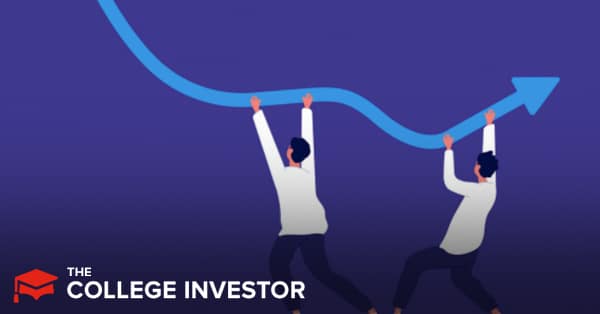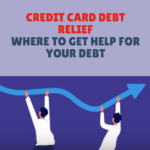
The majority of people who take out credit card debt fully intend to pay off their balances quickly. But sometimes personal circumstances such as divorce, unexpected pregnancy, or a job loss change your ability to repay credit card debt.
Other times, unexpected changes to the economy, like the Covid-19 crisis, can make paying back loans impossible. Thankfully, if you’re struggling to make your credit card payments, you may have a few options to relieve the burden.
In this article, we break down the various types of credit card debt relief and the pros and cons of each. Here’s what you need to know if you’re looking for help.
Begin By Listing All Your Debts
Before you can work on finding a credit card debt relief solution, you need to have a firm grasp of what exactly you’re dealing with. So grab a pen and paper and list all of your debts, both large and small. This can be a difficult activity. But it’s necessary because it will bring clarity to your debt situation.
This guide is focused on how to get credit card debt relief. But you’ll want to list all types of debt during this step, including any student loans, personal loans, payday loans, or other debts you may be dealing with. For each debt you have, answer the following questions:
- Type of debt
- Account Number
- Who owns the loan (For example Bank of America, SoFi, etc.)
- Minimum monthly payment
- Total amount owed
- Interest rate
- Date of last payment
- Paid on time (yes or no)?
- In collections (yes or no)?
Once your debt picture is clear, you can begin to think your various options for getting help. Below, we outline several different solutions for credit card debt relief. Based on the characteristics of your debt, you may find that one or more debt relief options make sense for you.
Types of Credit Card Debt Relief
The options below are particularly geared towards people who are looking for credit card debt relief. However, some of these solutions may be suitable for borrowers with other types of debt too.
Refinancing
Refinancing debt means that you take out a new loan to pay off an old loan. For people with overwhelming credit card debt, refinancing usually involves a balance transfer or consolidating debt using a personal loan.
Refinancing debt usually only makes sense if you have a good credit score and a strong income. It's really easy for refinancing debt to become a shell game where you move money around but never get out of debt. That’s why it's important to use debt refinancing and consolidation only if you’re ready to attack your debt, all your debts are current, and you can benefit from a lower interest rate.
If you have a strong credit score, many of the top balance transfer credit cards currently offer 12-18 months of 0% interest. Or, for larger amounts of debt, refinancing to a lower-rate unsecured personal loan could provide some relief.
Using a HELOC (Home Equity Line of Credit) to pay off credit cards, however, can be a risky decision. While there’s a good chance you’d be able to lower your interest rate with this strategy, you’d be moving from an unsecured to a secured form of debt. And if you later find that you can’t make the payments on your HELOC, you could lose your house.
Related: Should You Use A Balance Transfer Card Or Personal Loan To Pay Off Debt?
Changes To Payment Agreements
Another category of debt relief has to do with changes to payment agreements. The changes often go by names such as forbearance, deferral, or income-driven repayment plans.
Each of these changes affect when you pay a loan, or how much you have to pay each month. They are defined below:
- Forbearance: You do not have to make payments on your loan for a set period (usually up to 12 months), but interest continues to accrue on the loan.
- Deferral: You do not have to make payments on your loan, and interest stops accruing during the deferral period. This can happen for a period of a month or two or for up to a year or more.
- Income-Driven Repayment (IDR) plans: These plans are only available to federal student loan borrowers. They adjust your monthly payment based on your annual income. When you earn more, you pay more. When you earn less, you pay less. See if you qualify for an IDR plan.
Typically, it’s completely up to the lender’s discretion whether to accept or reject forbearance and deferment requests.
Most credit card companies haven’t specifically advertised repayment assistance during the coronavirus pandemic. But if you need help, it would be worth giving your card issuer a call to see if they will offer forbearance, a change in interest rate, or a reduced payment plan.
Debt Management Plans
Debt Management Plans (DMPs) are repayment plans that are managed by non-profit credit counseling companies. Typically these companies negotiate for waived fees and lower interest rates for all debt that you put on the plan. The interest rates are typically very competitive (especially for people with poor credit) with rates below 10% being typical.
When you enter into a DMP, the non-profit credit company will receive your monthly payment, and distribute to your lenders. Typically DMP plans are designed to help borrowers pay off their credit card debt in three years or less.
DMPs aren’t great for your credit score because you can’t actively build credit during the plan. That said, once the plan is complete, you start with a “clean slate” of sorts that allows you to rebuild your credit.
Debt Settlement
Debt settlement means paying back an amount less than you actually owe. In some cases, individuals who may be facing bankruptcy may try to settle debts before moving to bankruptcy.
It’s common to see companies advertising debt settlement plans on daytime television. But the CFPB warns borrowers that these companies can be expensive and many practice unethical or misleading behavior.
If you’re considering debt settlement, you’ll want to work with reputable companies who understand the debt settlement rules. Check with your state’s Attorney General and consumer protection agency to see if the company you’re considering has any complaints on file and to make sure that it’s properly licensed.
Bankruptcy
The last form of credit card debt relief is bankruptcy. In a Chapter 7 bankruptcy, your credit card debt will be completely wiped out and you can begin rebuilding your financial life immediately. In a chapter 13 bankruptcy, you’ll make payments for three to five years before the remainder of your debt is forgiven.
Bankruptcy makes your financial life difficult. It typically takes two or more years after a bankruptcy to qualify for a mortgage. And the bankruptcy will stay on your credit report for seven to ten years. Plus it can be very difficult to discharge student loans in bankruptcy, since you must prove in court that repaying them would cause you “undue hardship.”
That said, bankruptcy is a major form of borrower protection. If you cannot service your debts, bankruptcy could be a way to protect your home, car, and other personal property. However, it’s important to point out that in order to cancel federal student loans in bankruptcy, you’ll need to prove that repaying them would cause “undue hardship.”
Should You DIY Credit Card Debt Relief?
In general, a DIY approach to credit card debt relief is more cost-effective. Try taking advantage of the free resources offered by the Consumer Financial Protection Bureau (CFPB). Resources include templates for contacting collectors to request more information or to request that the collectors stop contacting you.
While DIY credit card debt relief can be more affordable, you may feel like your situation requires the help of an expert. If so, sitting down with a counselor from the National Foundation of Credit Counseling could be a good first move. But if you decide to pursue more complicated legal agreements like a debt settlement or bankruptcy, consider consulting with an attorney first.

Robert Farrington is America’s Millennial Money Expert® and America’s Student Loan Debt Expert™, and the founder of The College Investor, a personal finance site dedicated to helping millennials escape student loan debt to start investing and building wealth for the future. You can learn more about him on the About Page or on his personal site RobertFarrington.com.
He regularly writes about investing, student loan debt, and general personal finance topics geared toward anyone wanting to earn more, get out of debt, and start building wealth for the future.
He has been quoted in major publications, including the New York Times, Wall Street Journal, Washington Post, ABC, NBC, Today, and more. He is also a regular contributor to Forbes.
Editor: Clint Proctor Reviewed by: Chris Muller
